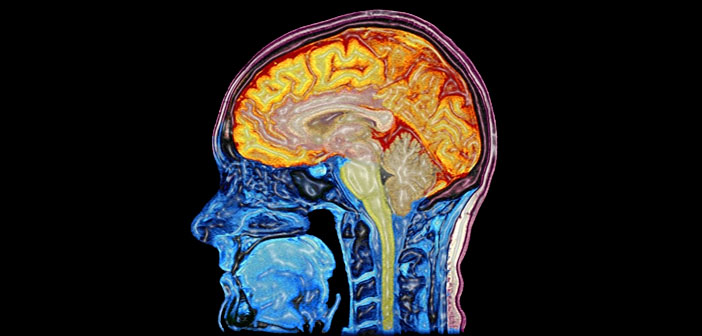
Digitally enhanced MRI of the human head showing the brain and spinal cord. CC by NCD 4.0
B0005622 Enhanced MRI scan of the head. Credit: Mark Lythgoe & Chloe Hutton. Wellcome Images
A group of UK scientists has teamed up with researchers from four pharmaceutical companies to investigate whether mood disorders, such as depression and neurodegenerative diseases, such as Alzheimer’s disease, could be treated by targeting the immune system. The link between the immune system and psychiatric and neurodegenerative disorders has been established by a number of studies. These studies indicate that increased levels of inflammation are found in patients with depression and Alzheimer’s disease. It has also been shown that inflammation can trigger responses that resemble depression or neurodegeneration. However, it is not clear whether or not anti-inflammatory medicines could benefit patients.

Professor Ed Bullmore, from the University of Cambridge, who is leading the consortium, said: “This is an area of enormous public health importance – depression is the single biggest cause of disability in working age adults and Alzheimer’s disease is the main cause of the growing numbers of patients with dementia in our aging population. However, finding new medicines for these disorders has proven to be very difficult in the last few decades. Our consortium is taking a radically innovative approach, focusing on drug targets in the immune system rather than the nervous system. We have an excellent team of academic and industry experts assembled to address the challenges”
This is a joint program of work building on the complementary resources and expertise of all parties. The commercial partners in the project will contribute financial support, drug discovery know-how, preclinical models, imaging expertise, and access to anti-inflammatory drugs. The academic partners will contribute expertise in neuroimaging, clinical phenotyping and trials, animal models and informatics.

